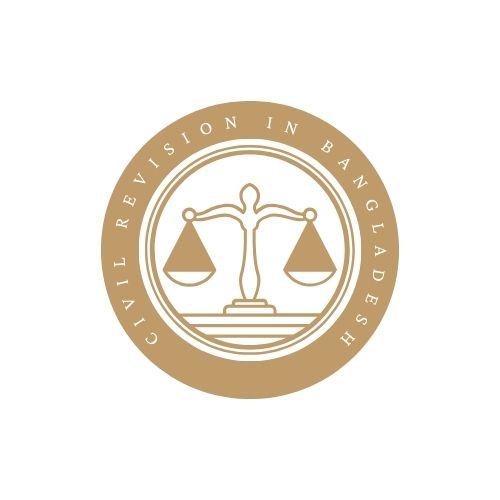Table of Contents
ToggleIn Bangladesh, Civil Revision is a legal process through which a higher court reviews the decision of a lower court in a civil matter to correct errors of jurisdiction or law. Civil revision is governed by Section 115 of the Code of Civil Procedure, 1908 (CPC). According to the law, it is a legal remedy issued by the High Court Division (HCD).
Explanation:
Definition – the Civil Revision is a judicial remedy of the HCD in a suit which is decided by the subordinate court under the section 115 of the CPC.
In revision, the HCD examines –
- Whether the lower court used the power which was not in it by law, or
- Whether it failed to use its power which it had, or
- Whether it used its power
Purpose:
The purpose of the Civil Revision is to prevent injustice and ensure that lower courts do not misuse their power.
Conditions of Filling of a Civil Revision:
Under the law, an aggrieved party may apply for revision petition. When – the order is not appealable, or the lower court made a serious legal or procedural mistake, or there is no other proper legal remedy available, or the mistake has caused unfair harm or injustice.
For example, if a trial court gives a decision in a case, it legally cannot handle, the affected party can seek civil revision in the High Court.
Steps of Filing a Civil Revision:
- Filing the Petition: The aggrieved party submits a revision petition to the High Court
- Supporting Documents: The petition must include the judgment and explain the legal
- Rule and Record Call: The High Court may issue a notice and request case
- Decision: After hearing both sides, the High Court may confirm, change, or cancel the lower court’s decision.
Courts having Revisional Jurisdiction:
- High Court Division
- District Judge Court
Filling Revision before HCD: – According t the section 115 of the CPC, 1908
Firstly, when the aggrieved party files for revision to the HCD, the HCD may call for the record of any suit or proceedings which has been passed by a Court of District Judge or Additional District Judge. Or a decree has been passed by a Court of Joint District Judge, Senior Assistant Judge or Assistant Judge.
After that, if the court has committed any error of law resulting in an error in such order occasioning failure of justice, the HCD may revise such order and make such order as the HCD thinks fit. (S. 115(1))
Secondly, when the aggrieved party files for revision to the District Judge Court, the Court of District Judge may call for the record of any suit or proceeding which has been passed by a Court of Joint District Judge, Senior Assistant Judge or Assistant Judge.
Furthermore, if such Court appears to have committed any error of law resulting in an error in such order occasioning failure of justice, the Court of District Judge may revise such order and make such order as it thinks fit.
Common Challenges:
- Delay in resolving revision petitions due to a heavy case
- Misuse of civil revision as a tactic to delay
- Lack of awareness about when and how to use civil revision
Examples of Case Laws:
- Abdul Gani Md. Idris, 38 DLR (1986): The High Court ruled that revision is only for legal errors, not factual disagreements.
- Jamil Ahmed State, 44 DLR (1992): The court stressed that civil revision is meant to prevent injustice from illegal or irregular court actions.
Conclusion:
Civil revision under the section 115 of CPC is a valuable part of Bangladesh’s legal framework. It allows the High Court Division to supervise and correct serious mistakes by lower courts. Although it cannot be used in every case, and must not replace appeals, it remains an essential safeguard for justice. To improve its effectiveness, courts and lawyers must ensure that this process is used correctly and efficiently.
References:
- Code of Civil Procedure, 1908, Section 115 (Act V of 1908).
- Analysis Of the Revisional Powers of The Civil Court in The Context of Legal Provisions and Judicial Decisions: Bangladesh Perspective- K Ullah – 2023
- Abdul Gani vs. Idris, 38 DLR (1986).
- Jamil Ahmed vs. State, 44 DLR (1992).
- Rules on Appeal Revision Review & Power of Appellate Court ( Shameem Sarwar)

